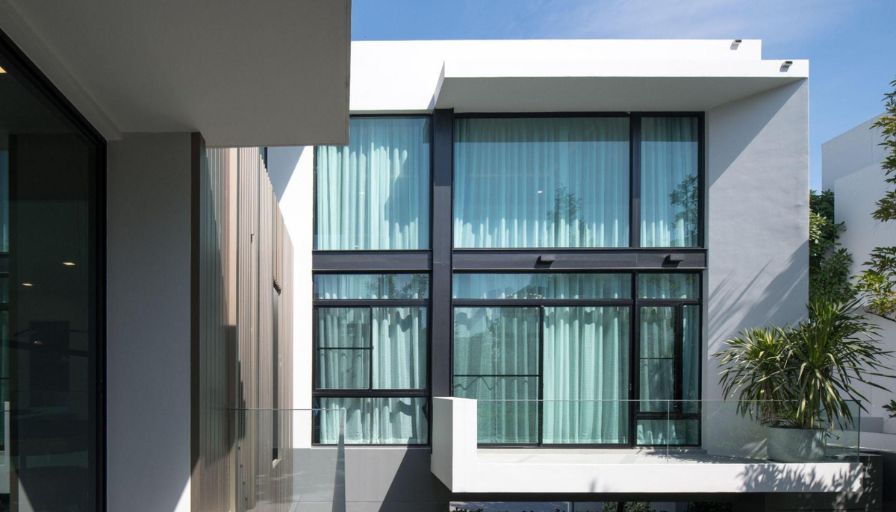In the evolving world of architecture and home design, energy efficiency is no longer a bonus; it’s a necessity. Homeowners and architects today are not only seeking visual charm and premium aesthetics but also demanding solutions that align with long-term sustainability. One such design element that beautifully bridges these two needs is the French window.
Known for their timeless appeal, French windows have long been associated with the elegance of European architecture. But beyond their aesthetic charm, these wide-opening, glass-rich window systems are proving to be valuable allies in creating energy-efficient homes, especially when designed using advanced materials like aluminium and performance glass. In this post, we’ll explore how French windows can help optimise energy use in your home and enhance overall performance when designed with the right materials.
Understanding French Windows and How They Work
French windows are essentially a pair of doors or large windows that open outward or inward, often without a central mullion. Their large glass panes allow maximum daylight to enter the home while providing unobstructed views of the outdoors. When fitted properly, these windows can transform the look and feel of any space by introducing light, air, and a sense of openness.
Unlike sliding windows that open partially, French windows can open completely, offering better natural ventilation and enhanced connectivity with balconies, patios, or gardens. However, the impact of these windows on energy efficiency depends significantly on their material, glazing, and installation.
This is where aluminium casement windows configured as French windows present a powerful combination, offering the full aesthetic appeal of traditional French windows, with the high performance of modern fenestration systems.
Harnessing Natural Light to Reduce Energy Consumption
One of the most immediate energy benefits of French windows is their ability to flood interiors with natural daylight. When positioned strategically, such as on the north or east side of the house, these windows can help reduce the need for artificial lighting during the day.
This not only saves electricity but also enhances the mood and well-being of occupants by increasing their exposure to natural light indoors. Homes that utilise French windows in common living areas, dining spaces, or bedrooms often feel more open, fresh, and lively, all while keeping energy consumption in check.
The Role of Aluminium Casement Windows in Thermal Insulation
A key contributor to energy efficiency in any window system is its ability to reduce unwanted heat transfer. Aluminium casement windows, especially those with double-glazed units and thermal break technology, offer superior insulation compared to traditional wood or uPVC windows.
When configured as French windows, aluminium casement systems provide a tight seal when closed, preventing heat loss during winter and blocking heat gain during summer. This directly improves the performance of heating and cooling systems, leading to lower energy bills.
Products from brands like TOSTEM, such as their ATIS casement range, are designed with precision-engineered corner joints and high-grade gaskets. These features ensure air-tightness and water-tightness, both of which are essential for maintaining a stable indoor climate. Furthermore, the aluminium used by brands like TOSTEM is anodised rather than painted, ensuring long-term surface stability and resistance to fading, even under harsh weather conditions.
Read More:- Discover the Advantages of Kitchen Sliding Doors for Your Home
Reducing Carbon Footprint Through Material and Lifecycle Efficiency
Aluminium is not only lightweight and strong but also one of the most sustainable building materials available. It is 100% recyclable without degradation, which means that aluminium frames can be reused indefinitely without losing their structural integrity.
Choosing aluminium casement windows for your French window installation is a smart move toward sustainable living. Aluminium’s long lifespan means fewer replacements over time, and its corrosion-resistant properties ensure that it maintains its look and function without needing intensive maintenance or repainting.
Brands like TOSTEM India further reduce environmental impact by adopting factory-finished, pre-engineered systems that minimise on-site waste and labour. Each component is tested for performance, ensuring that the entire lifecycle of the window is covered. From manufacture to installation and beyond, it supports eco-friendly construction.
Smart Glazing and Its Impact on Energy Use
Glass selection plays a crucial role in the energy efficiency of French windows. Standard glass can allow significant solar heat gain, leading to higher air conditioning loads in warmer climates. On the other hand, energy-efficient glazing, such as low-E (low-emissivity) glass or double-glazed units with inert gas filling, helps maintain comfortable indoor temperatures without excessive energy use.
When paired with robust aluminium frames, this kind of smart glazing creates an effective thermal barrier. It allows visible light to pass through while reflecting infrared radiation, keeping interiors cool in the summer and warm in the winter.
Conclusion
As homes become smarter and more energy-conscious, every architectural element needs to play its part, and windows are no exception. French windows, when designed with performance in mind, are more than just elegant additions to a home. They become essential tools in achieving energy efficiency, enhancing natural light, improving ventilation, and reducing dependence on artificial climate control systems.
By opting for high-quality materials like aluminium and incorporating performance glass, homeowners can significantly lower their carbon footprint while enjoying modern comfort and classic beauty. Brands like TOSTEM India lead the way by offering window systems that combine aesthetic versatility with cutting-edge engineering, resulting in solutions that are both sustainable and stylish.
Whether you are building a new home or renovating an existing one, choosing French windows and aluminium casement windows is an investment in long-term performance and responsible living. It’s not just about opening your home to the outdoors. It’s about opening it to a better, more efficient future.
Disclaimer: The information contained herein is for general informational purposes only. While we endeavour to keep the information up to date and correct, we make no representations or warranties of any kind, express or implied, about the completeness, accuracy, reliability, suitability, or availability with respect to the content or the information, products, services, or related graphics contained herein for any purpose.
